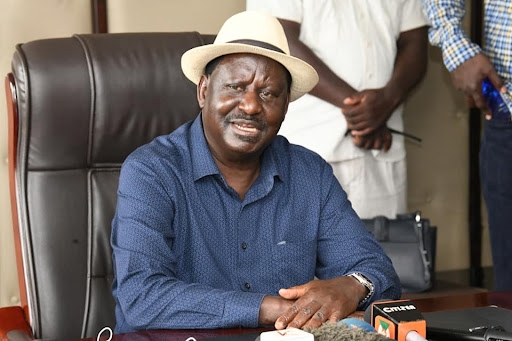AstraZeneca, a global pharmaceutical supplies-led organization operates in more than 100 markets and has over 80,000 employees.
The focus has been on core disease areas of oncology, and respiratory infections and has a rare disease unit and vaccines.
Global Sustainability and Access to Healthcare vice president, at AstraZeneca Ashling Mulvaney, spoke to the Star health journalist Magdaline Saya on some of their key health programmes:
Do you think Kenya is on track towards the elimination of NCDS?
When I look at the growing burden of NCDs, I see that there is an increased opportunity for multi-stakeholders to work together to address that burden.
I look at what impact has been made in communicable diseases and see there is an opportunity to do that in NCDS but it takes time and the pandemic has shown us that there are fragilities in health systems across the globe.
By working together in partnerships and taking those learnings we will all be better placed to address the burden of NCDs.
Talking about strengthening health systems, what are some of the interventions you have made in Kenya?
When I look specifically at Kenya the key element of the programme is the training of healthcare workers and community health volunteers.
We also do other programmes, for instance, we have our young health programme which is very much focused on youth and youth prevention.
We are also looking at peer-to-peer empowerment and education, looking at healthy lifestyle education, looking at smoking cessation, looking at alcohol avoidance and all of that help in the early stages.
We have also provided over 300 nebulizing stations that have been distributed across the 47 counties with the key element of looking at respiratory care in an asthmatic.
What more should we expect?
In AZ health is in our DNA but we see the value and importance of research so having the opportunity to work with KEMRI, with Aga khan to do a pilot study looking at Artificial Intelligence and as a result of that being in a position to donate the equipment both to Kemri and Aga khan, Kenyatta National Hospital.
We keep the focus on education and research by looking at opportunities to accelerate access to healthcare and take leanings.
What was the impact of the Covid-19 pandemic on the care of patients living with NCDs?
We have seen globally that there was a challenge with consistent care of patients generally and I think NCDs have been impacted.
Particularly when you look at oncology there has been a huge impact because when I look back to what we did with Healthy Heart Africa we had to pause some activities.
We could not have community screening events during the pandemic but we were able to provide more targeted interventions.
Working in partnership with the ministry we see now in post-pandemic the new normal is that people are working differently, patients are starting to return to the healthcare system, they are more aware of their health status and keen to embrace engaging in the healthcare so they get the treatment they need.
What is the Healthy Heart Africa programme and what are the challenges that it seeks to address
At Healthy Heart Africa we have a database of over 7 million screenings and the ministry has access to that.
It is one of the largest hypertension databases in Kenya but within border Africa and it gives an indicator of the prevalence of the disease.
The overall goal of healthy heart Africa is to tailor the programme to the country's needs by working in partnership with Kenya to take those learning and co-develop together what the programme can look like and then to enable the ministry to take the learning from the programme and redeploy to other disease areas such as diabetes and respiratory.
We are passionate about integrating elements of the programme into the healthcare system so you get the same healthcare for the same dollar and you can only do that by working with partnerships.
What are the HHA programme's key focus points?
A key focus of the programme is looking across three pillars of health systems, disease awareness and education, training and guidelines and also looking at affordability.
Since the launch in 2014 we have delivered over 27,000 screenings across all countries, we have identified over 5 million living with elevated blood pressure and we have diagnosed over one million.
But what is important for us is looking at the sustainability of the programme but also building health strengthening and systems resilience the co-element is training so we have trained over 9,000 healthcare workers and some community volunteers and we have also activated over 900 healthcare facilities across the market.
Primary healthcare calls for a focus on prevention rather than cure. What is your advice to countries yet to integrate NCDs into their primary healthcare package?
You have to do what is right for the country that you are in. Governments have got the best knowledge and awareness of what their populations needs.
When I look back to HHA, part of the programme was to bring care closer to the patient, bring it to the lower levels so patients have access and they can then be diagnosed earlier and prevent more comorbidities, hypertension and strokes and heart attacks because if you don’t know you have the disease then you won’t get treatment.
We tend to talk more about NCDs in adults, what is the situation like in children?
That is where our NCDs young health programme comes in so we focus on the youth.
We really take them on board in terms of awareness and education but also they become empowered to be the voice and we find that they educate their parents so they are a great voice to share their experiences with their parents but also with each other to have avoidance behaviours that are very important for our future.












